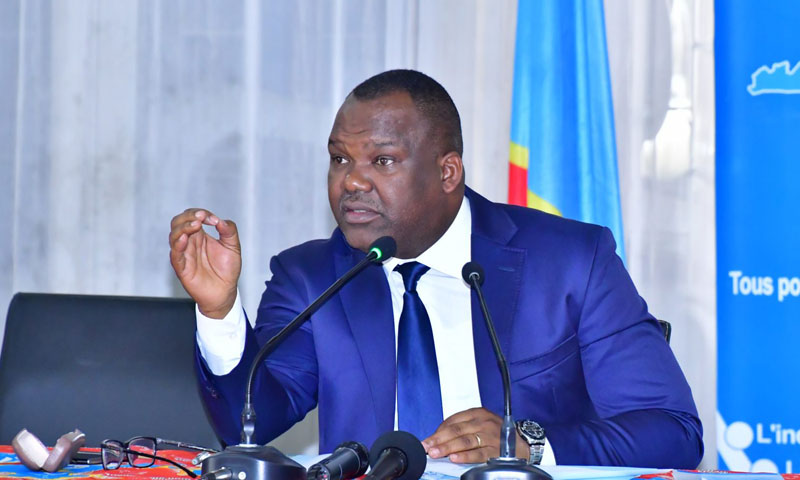GOMA – The Democratic Republic of Congo’s electoral body said on Thursday it postponed presidential elections initially scheduled on December 23 and the poll would now take place around seven days later.
The elections are being held two years late after the National Independent Electoral Commission failed to organize it on time in 2016. On Wednesday, Martin Fayulu, one of the three potential candidates told this website he does not agree with postponement idea.
“We want elections to go on Sunday as planned despite the challenges. This is our position,” Fayulu said on phone from the capital Kinshasa.
Fayulu said candidates received a text message telling them that the CENI president, Corneille Nangaa, had decided the commission was “technically unable” to hold the election as scheduled.
The electoral commission is citing fire outbreak last week that damaged one of the warehouses of the commission, Ebola disease and continued violence caused by rebels in eastern Democratic Republic of Congo, as the main reasons for the postponement.
The electoral Commission President Corneille Nangaa had earlier Thursday summoned presidential candidates or their representatives to a meeting in Kinshasa.
Last month, lawmakers from eastern Congo told this website militia attacks in eastern Democratic Republic of Congo would likely disrupt elections.
Campaigning for the presidential and parliamentary polls had planned to end on Friday night before the Dec. 23 vote which could give the central African nation its first peaceful and democratic transition of power since independence in 1960.
Mobilizing support and holding elections will be particularly difficult in the town of Beni in North Kivu province which is the epicenter of both Congo’s most deadly Ebola outbreak having killed more than 300 people and surging violence perpetrated by armed groups.
The militias will scare voters away, Captain Mak Hazukay, the spokesperson for Congo’s armed forces in North Kivu, told this Website.
Like most nearby attacks in recent years, it has been attributed to the Allied Democratic Front, a Ugandan Islamist group that’s been active in Congo for more than two decades.
Over a thousand people have been massacred in the area since 2014 by armed fighters and more than 230 this year, according to US-based Human Rights Watch.
Gregoire Kiro, an opposition lawmaker representing the town, said the national military and UN force isn’t capable of providing ending the conflict in the region.
“People are frightened and expect attacks in Beni and the surrounding areas during elections,” he said.
Jaribu Muliwavyo, another Beni lawmaker, said the ongoing chaos will mean many people miss the chance to vote.
Persistent inter communal violence has blighted much of North Kivu, as well as the neighboring provinces of South Kivu and Ituri, long after a half-decade civil war ended in 2003 and more than a hundred militias currently operate in the region.










